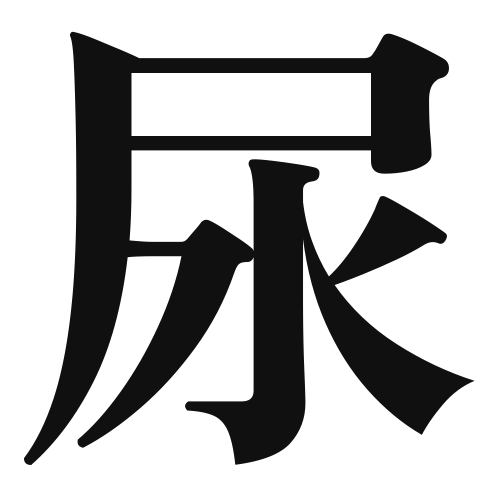1. Overview of Meaning
The kanji “尿” (pronounced “nyou”) means “urine” in English. It refers to the liquid waste produced by the kidneys and excreted from the body.
2. Formation and Radicals
The kanji “尿” is a phonetic compound (形声文字) that combines the radical for water (氵) and the phonetic component “尿” which suggests its pronunciation. The radical氵 indicates a relationship to water, which is fitting since urine is a liquid.
The radical for “尿” is 氵, which is commonly associated with water-related characters.
3. Examples of Usage
Common words and phrases that include “尿” are:
- 尿検査 (にょうけんさ, nyou kensa) – urine test
- 尿道 (にょうどう, nyou dou) – urethra
Example sentence in daily conversation:
「最近、尿の色が変わった気がする。」(I feel like the color of my urine has changed recently.)
4. Synonyms and Antonyms
Similar kanji with related meanings include:
- 「水」(みず, mizu) – water, which is a broader term that refers to the liquid itself.
Antonyms include:
- 「便」(べん, ben) – feces, which refers to solid waste, contrasting with urine.
5. Cultural and Historical Background
In Japanese culture, the concept of “尿” is often associated with health and wellness, as urine tests are common in medical examinations. Additionally, traditional Japanese medicine sometimes uses urine analysis to assess health.
Proverbs and idiomatic expressions related to “尿” are less common, but the importance of bodily functions in health discussions is prevalent in various contexts.
